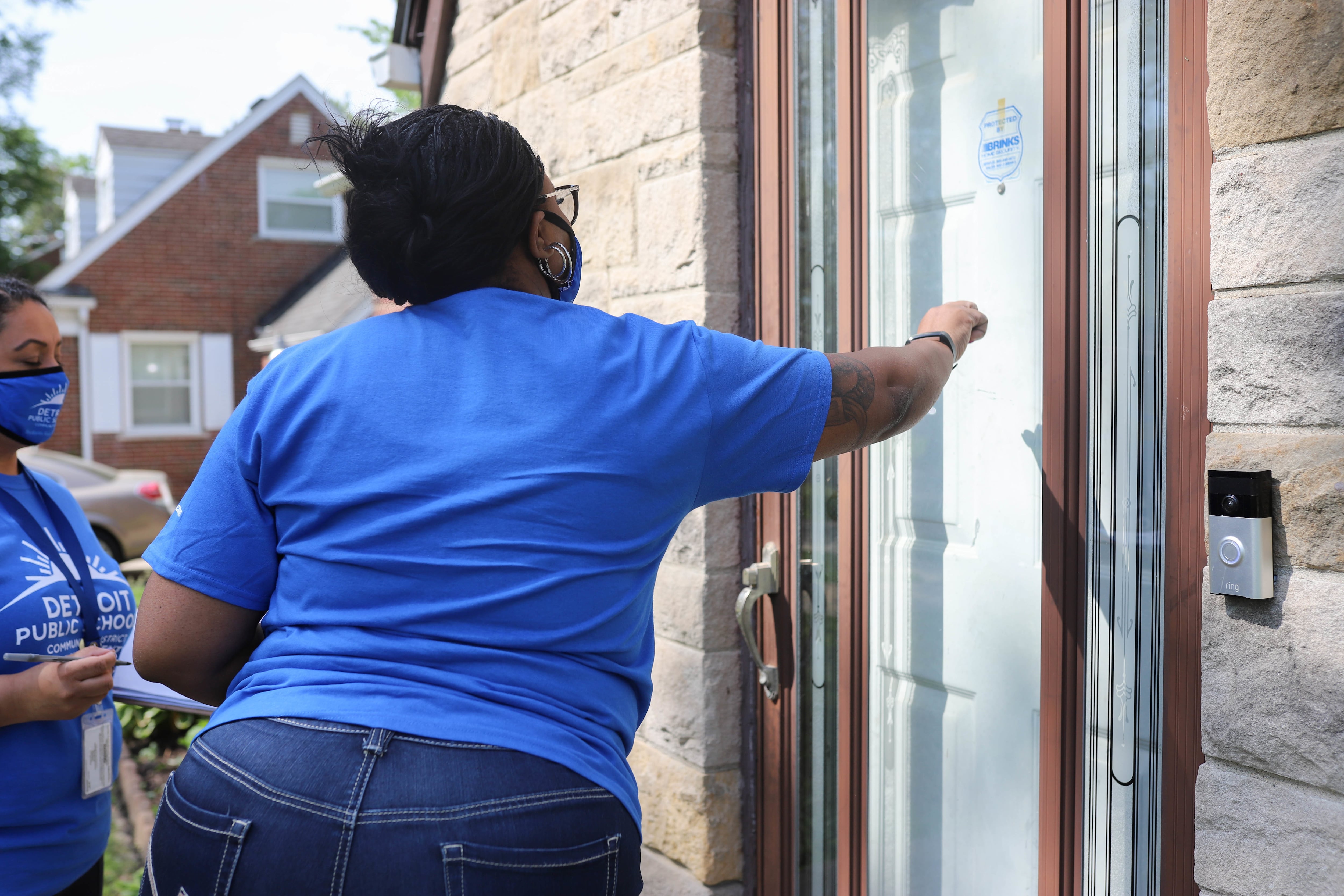Chronic absenteeism rose significantly for Detroit district students last year as families continued to deal with financial, logistical, and health ramifications of the COVID pandemic.
A new Wayne State report shows that 70% of Detroit students were chronically absent — missing 10% of last school year — compared with 62% in 2018-2019. About 54% were described as severely chronically absent, meaning they missed 20% or more of the year.
Absenteeism rose in all K-12 grades but especially among 12th graders, 87% of whom were chronically absent, while roughly three-fourths of district kindergartners and students who received special education services missed 10% or more of the school year.
The district had been making some progress to reduce chronic absenteeism prior to the pandemic. Several years ago, the Detroit school district invested in hiring attendance agents in every school. Superintendent Nikolai Vitti and the board review chronic absenteeism data monthly, along with other metrics, and the superintendent has expressed his concern about the rise in chronic absenteeism since the pandemic began.
More than a third of families surveyed reported internet and computer issues during the school year, researchers found, contributing in part to the rise in absenteeism. Because schools pivoted to full online instruction last year, a lack of transportation was less of a factor in students missing school than it has been in previous years.
The report comes from a representative survey of more than 800 Detroit families as well as student attendance records and administrative data provided by the Detroit school district.
At the core of the study’s results, according to Sarah Winchell Lenhoff, an assistant professor of education at Wayne State, are the ongoing social and economic barriers that chronically absent students face, particularly the “really difficult choices that families are forced to make in order to kind of meet the expectation of good attendance without an adequate kind of social support structure.”
“We talked to families who had to quit their jobs to make sure their kids are in school,” Lenhoff said. “Maybe their child’s attendance is better, but then they’re unemployed, and they’re not making any money.”
Among the key findings:
- Thirty-eight percent of parents said their child didn’t have access to a computer and 30% said internet troubles led to their child being absent. More than 50% of Detroit district families experienced financial and health-related challenges during the pandemic.
- Thirty-four percent of district families had a family member who got sick or died of COVID.
- Students in families who experienced economic challenges such as lower incomes, irregular work schedules, unemployment, and eviction were more likely to be chronically absent.








